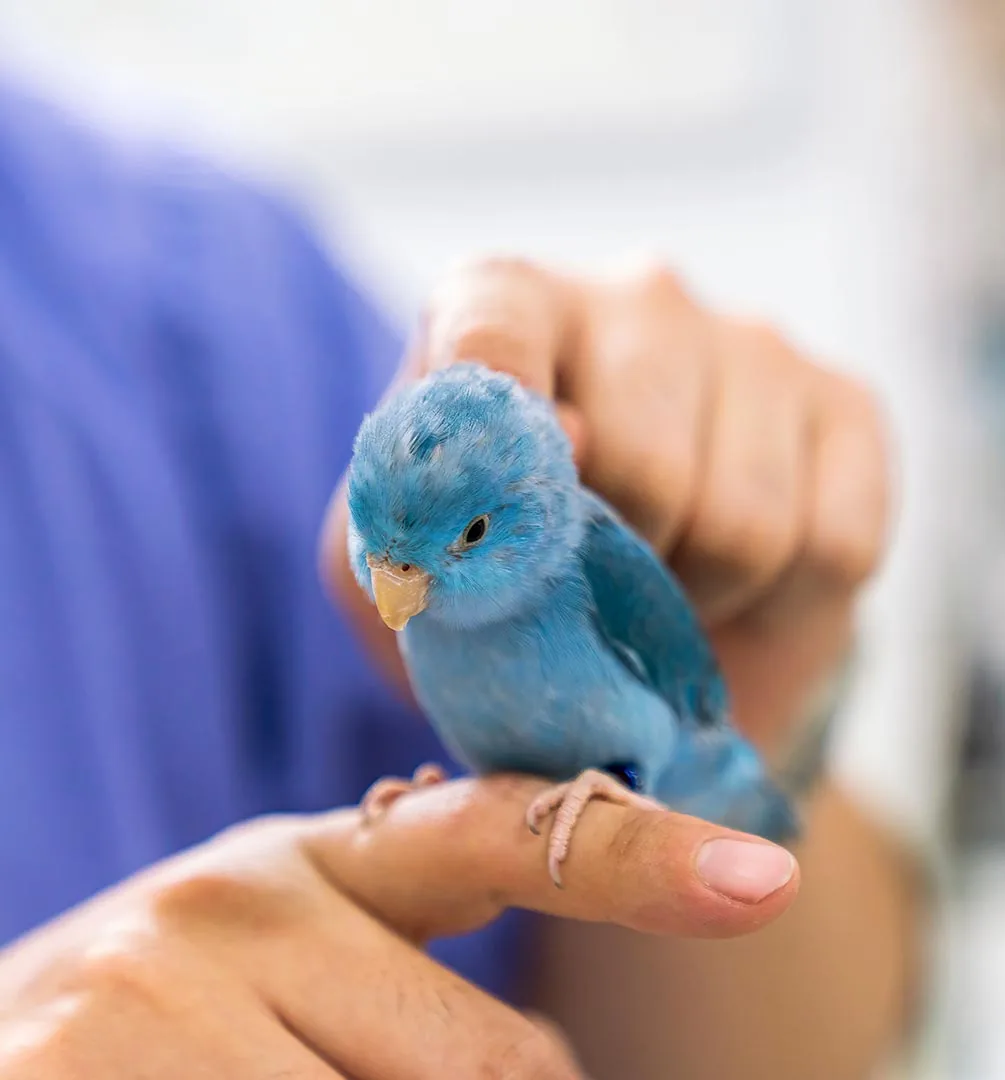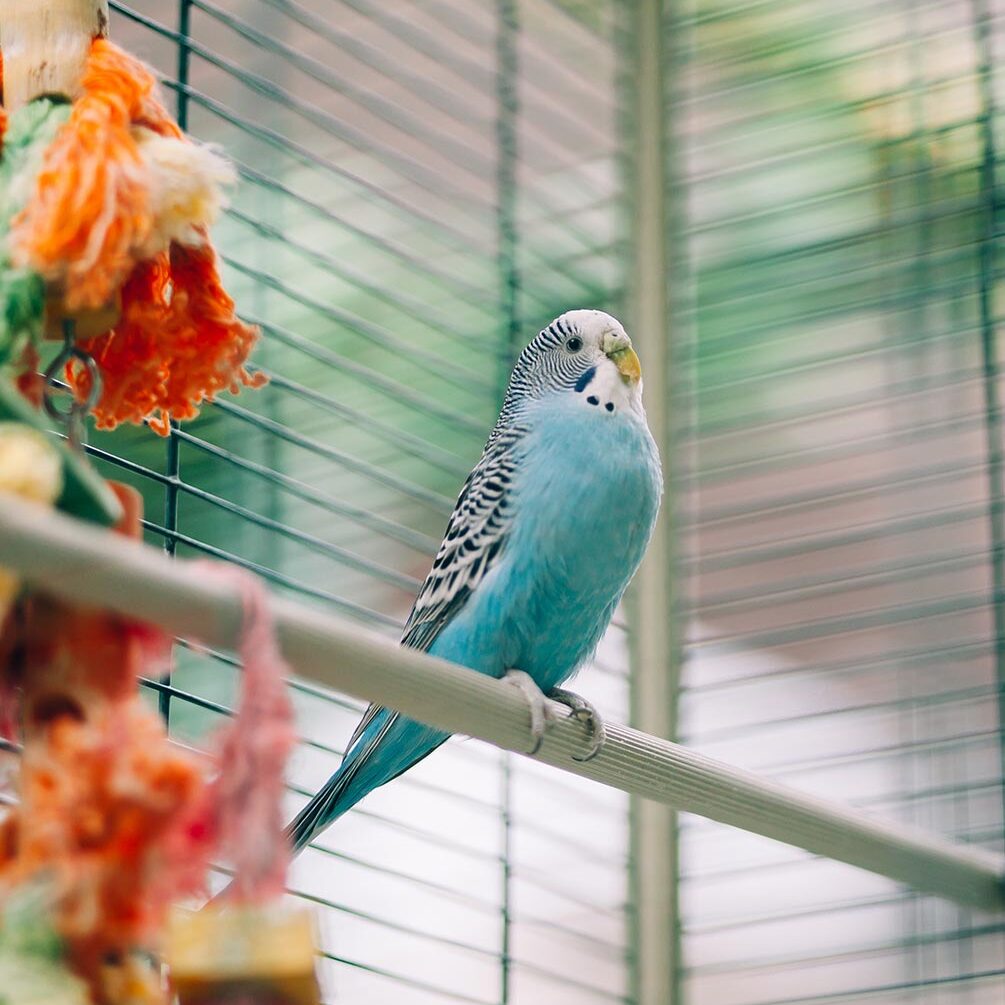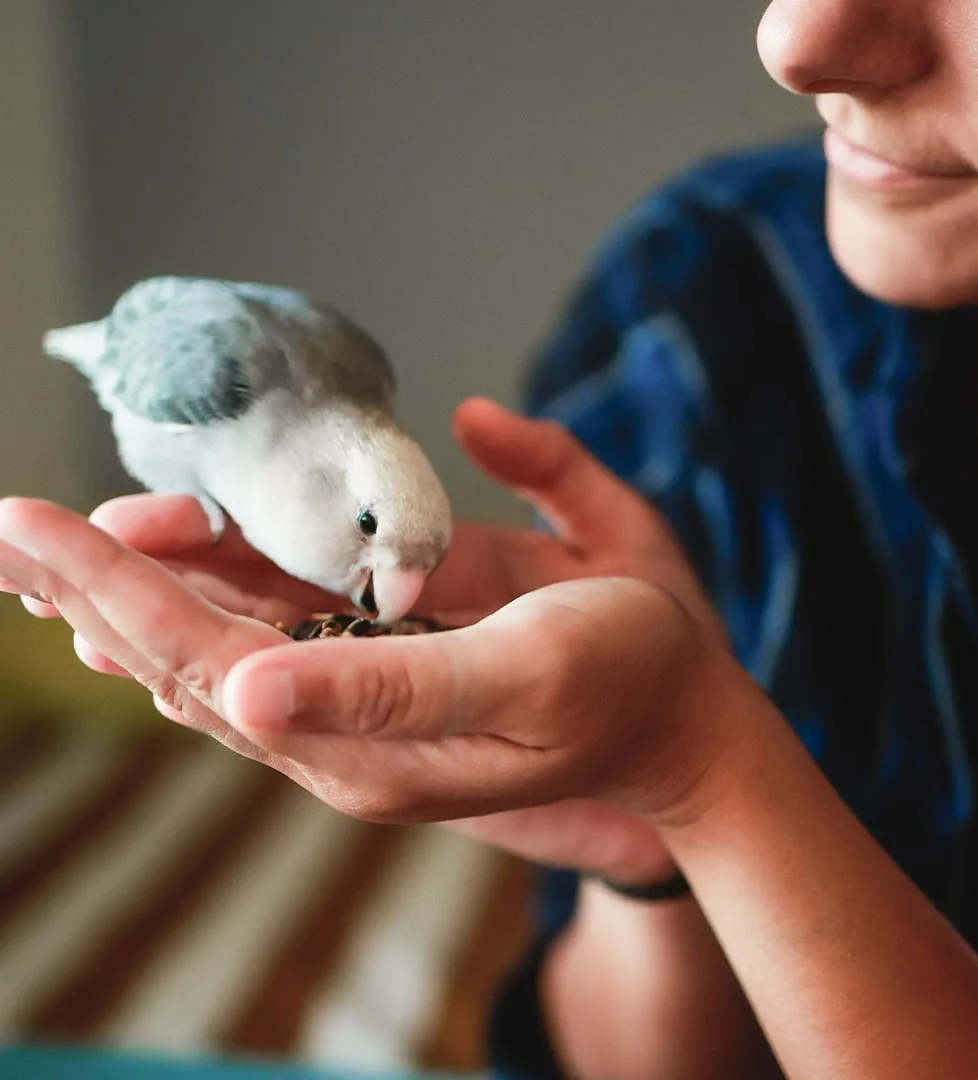
Bird Care in Parrish, FL
Birds are intelligent, social pets who bring lots of joy to their families — but they also need specialized care to live long, happy lives. Their environment, diet, and enrichment all play vital roles in keeping them healthy. Here’s what every bird owner should know about caring for their feathered companion.
Contact us today to schedule your bird’s wellness care visit (Recommended Bi-annually). If you have questions, call us at (941) 216-2335!
Creating a Safe and Enriching Home for Your Bird
Birds thrive in environments that allow for mental stimulation and safe exploration. Your bird’s living space should include:
- A properly sized cage with room to stretch and flap wings without obstruction
- Variety of perches of different textures and sizes to promote foot health
- Toys for enrichment to prevent boredom and encourage natural behaviors like chewing and foraging
- Safe location away from drafts, smoke, and nonstick cookware fumes (which can be deadly to birds)
Allowing supervised out-of-cage time is also important for exercise and bonding.

What Should Birds Eat?

A balanced diet is essential to prevent common nutritional diseases in birds. The basics include:
High-quality pellets (like Harrison’s or Zupreem)
They should form the foundation of the diet.
Fresh fruits and vegetables
Offer them daily, focusing on dark leafy greens, carrots, peppers, and berries.
Seeds and nuts
Tasty but high in fat, so best used sparingly as treats.
Fresh, clean water
Should be available at all times.
Avoid avocado, chocolate, caffeine, alcohol, and salty foods — all of which are toxic to birds.
